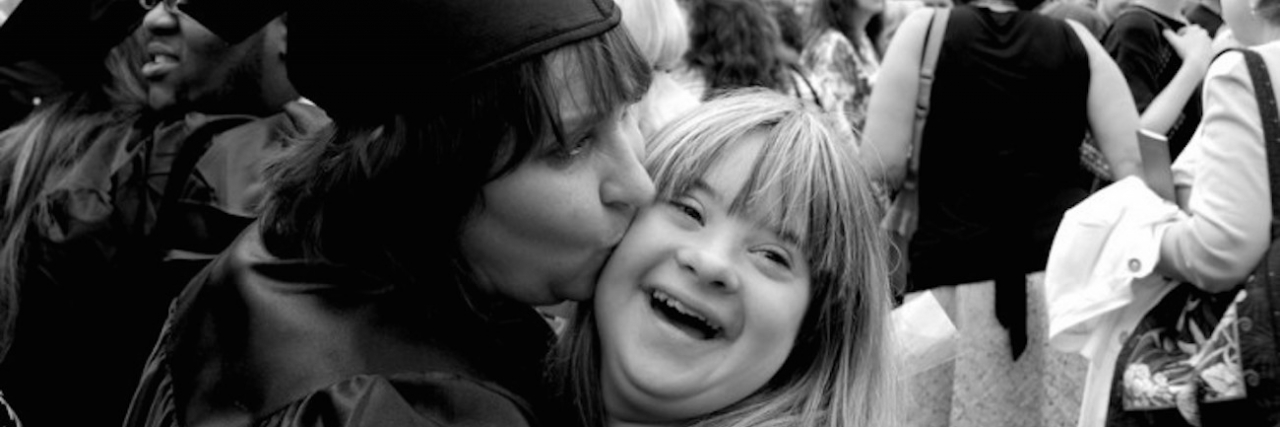I am Anna’s mom. My daughter is 26 years old and was born with Down syndrome. When her friends see me they say, “Hi, Anna’s Mom!” My identity had become synonymous with my daughter’s birth.
The morning Anna was born a nurse came into my hospital room and said, “God has a big job for you!” That same morning a photographer said, “I guess you don’t want pictures of your baby, do you?” Another nurse said, “Are you accepting your flowers?” I felt like I was in a bad movie. Didn’t these people know I just gave birth to my beautiful third daughter? I was too happy that she was alive to be mad at their ignorance and insensitivity, and I was too concerned with how to have the right words for my two other daughters waiting at home for their new sister.
When Anna was born, I wanted to know how to talk to my daughters about their new very special sister. At the time, they were 5 years old and 12 years old. I wanted to know the right way to talk to them about Down syndrome. So I asked my nurse if I could have a visit from the hospital social worker to seek her advice.
When I met with the social worker, she said, “The way you handle the new addition to your family is the way your daughters will handle the news as well. If you’re relaxed and accepting, then they will follow. If you’re upset, they will be, too.”
At that time in the hospital, I stated to the social worker I wanted to see a book or watch a video of a child with Down syndrome at 2 years old, at 5 years old and at 10. I wanted to know how she would talk, play and grow with her siblings. What would the experience of puberty be like? What would her school experience be like? Would she be able to read, ride a bike, get married? She said there was no such video or book to look at. She did state I shouldn’t read a book written before the early 80’s since it would get me upset.
At the time my daughter was born, people were starting to think differently about people with different abilities. The new buzzwords were “reaching potential.” Yes, that’s what I wanted. I wanted Anna to reach her true potential. I wanted her to be independent. Have a wonderful life. Isn’t there a book or video out there that speaks to this? But there wasn’t. I was really in shock about that. I thought at that moment someday I would like to make a video or write a book so people could see how many things are possible for people with special needs. (And one day, I did.)
The social worker was a wise woman and could tell I was wrestling with many different emotions. She expressed I would have a best friend my whole life. She said it wouldn’t be easy, but I would find my strength in the many milestones Anna would reach. Meeting the social worker was a blessing. Her words and counsel have resonated with me many times in my daughter’s life.
I finally found my strength to go home and bring the family together with my three daughters and my husband through faith, comfort, encouragement, love and support by people who knew how to come alongside a new mom. Yes, Anna’s mom.
This post is an edited excerpt from the book, “Reasons to Smile: Celebrating People Living With Down Syndrome.”
The Mighty is asking the following: What is a part of your or a loved one’s disease, disability or mental illness that no one is aware of? Why is it time to start talking about it? If you’d like to participate, please send a blog post to community@themighty.com. Please include a photo for the piece, a photo of yourself and 1-2 sentence bio. Check out our Submit a Story page for more about our submission guidelines.
Have you seen the first film with a national release to star a person with Down syndrome? Check out the film “Where Hope Grows” today!

